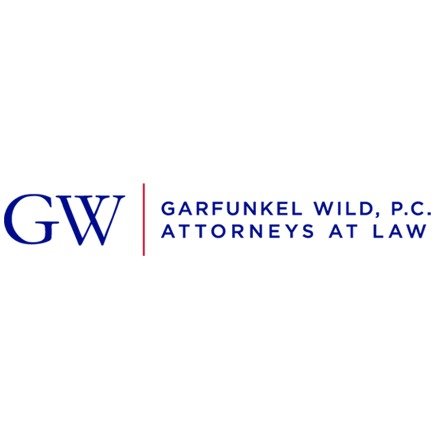Best International Trade Law Lawyers in New York
Share your needs with us, get contacted by law firms.
Free. Takes 2 min.
Or refine your search by selecting a city:
List of the best lawyers in New York, United States
About International Trade Law in New York, United States
International Trade Law governs the import and export of goods and services across international borders. In New York, International Trade Law is influenced by federal statutes, international treaties, regulations, and state-specific considerations. New York plays a pivotal role in global commerce due to its position as a financial hub, major port access, and its diverse business community. Legal issues may encompass customs compliance, trade agreements, tariffs, sanctions, export controls, and cross-border dispute resolution. Navigating International Trade Law in New York requires an understanding of both federal and international regulations, as well as knowledge of how local laws and practices affect business operations.
Why You May Need a Lawyer
International Trade Law is highly complex and subject to frequent changes. Individuals and businesses in New York may need a lawyer in circumstances such as:
- Establishing import or export operations and ensuring regulatory compliance
- Drafting or reviewing contracts involving foreign entities
- Dealing with tariff or customs disputes
- Responding to investigations, penalties, or audits by United States Customs and Border Protection or other government agencies
- Navigating sanctions, export controls, or embargoes
- Managing international trade financing and payment issues
- Resolving cross-border commercial disputes or litigation
- Adhering to anti-corruption and anti-bribery laws
- Seeking advice on new or revised international trade agreements
An experienced International Trade Law attorney can help protect your interests, ensure compliance, and minimize risks associated with international commerce.
Local Laws Overview
While International Trade Law is primarily regulated at the federal level, New York laws and local regulations significantly impact international transactions:
- Uniform Commercial Code (UCC): New York has adopted the UCC, which governs many aspects of commercial transactions, including those involving foreign trade.
- New York Banking and Financial Regulations: Banks and financial institutions in New York must comply with both federal export/import finance rules and state-specific licensing, reporting, and anti-money laundering requirements.
- Dispute Resolution Forums: New York is a major venue for international arbitration and litigation, with courts and arbitral institutions experienced in trade-related disputes.
- Port and Customs Regulations: The Port of New York and New Jersey is subject to local, state, and federal rules affecting goods movement, customs clearance, and related logistics.
- Sanctions and Export Controls: Businesses in New York must observe federal rules but may also encounter additional state measures on certain goods or services.
These local aspects intersect with federal and international regulations, making comprehensive legal guidance essential for New York-based trade participants.
Frequently Asked Questions
What is International Trade Law?
International Trade Law regulates how goods, services, and intellectual property are exchanged across national borders. It covers a broad spectrum of topics including customs procedures, tariffs, trade agreements, sanctions, and dispute resolution.
How does International Trade Law affect businesses in New York?
Businesses in New York engaged in importing or exporting are subject to federal regulations, international treaties, and local rules. Compliance affects everything from pricing and supply chains to risk management and profitability.
What government agencies regulate International Trade in New York?
Key agencies include the United States Customs and Border Protection, Department of Commerce, Department of State, Office of Foreign Assets Control, New York State Department of Financial Services, and local port authorities.
What are common legal issues in International Trade Law?
Typical concerns involve customs clearance, tariff classification, trade sanctions, export licensing, contract enforcement, and resolving disputes with overseas partners.
Can I face penalties for accidentally violating international trade rules?
Yes, even unintentional violations can result in significant financial penalties, shipment seizures, license revocations, or criminal prosecution depending on the severity and nature of the offense.
Do special rules apply for certain types of goods or technology?
Yes, items such as hazardous materials, drug products, dual-use technology, and defense articles are subject to strict export and import controls. Additional permits or licenses may be required.
How do trade agreements impact my business in New York?
Trade agreements can lower tariffs, streamline customs procedures, and create new market opportunities. Alternatively, changes in agreements such as tariffs or import quotas can affect your business strategy and costs.
Is arbitration an option for resolving international trade disputes in New York?
Yes, New York is a leading center for international arbitration, and many contracts specify New York as the seat for arbitrating trade disputes due to its fair and efficient legal system.
Can International Trade Law help protect my intellectual property abroad?
International treaties and agreements often include intellectual property protections, but enforcement varies by country. Legal guidance is critical to securing and defending your rights in foreign markets.
How can a lawyer assist with customs audits or investigations?
A lawyer can help you prepare for and respond to customs audits, ensure compliance documentation is in order, represent you during investigations, and negotiate settlements or penalties if needed.
Additional Resources
For further information and support, consider these resources:
- United States Customs and Border Protection (CBP): Guidance on import and export regulations, customs procedures, compliance, and enforcement.
- United States International Trade Administration (ITA): Offers export counseling, market research, and trade promotion services.
- Office of Foreign Assets Control (OFAC): Details on sanctions programs and compliance for international transactions.
- New York State Department of Financial Services: State-level guidance on foreign financial transactions and compliance matters.
- World Trade Center New York: Business development, networking, and trade support for New York companies.
- New York International Arbitration Center (NYIAC): Information on resolving international disputes through arbitration in New York.
Next Steps
If you require legal assistance with International Trade Law in New York, consider the following steps:
- Identify your specific trade-related concern, such as compliance, contracts, sanctions, or dispute resolution.
- Gather all relevant documents and communications related to your international trade activities.
- Consult an attorney who specializes in International Trade Law with experience handling matters in New York. Prepare questions about their experience, approach, and fees.
- Reach out to professional organizations or government agencies for preliminary guidance if needed.
- Stay informed about changes in trade laws and regulations that may impact your business or personal interests.
Working with the right legal professional can help you achieve your goals in international trade while minimizing risks and ensuring compliance with all applicable laws in New York and beyond.
Lawzana helps you find the best lawyers and law firms in New York through a curated and pre-screened list of qualified legal professionals. Our platform offers rankings and detailed profiles of attorneys and law firms, allowing you to compare based on practice areas, including International Trade Law, experience, and client feedback.
Each profile includes a description of the firm's areas of practice, client reviews, team members and partners, year of establishment, spoken languages, office locations, contact information, social media presence, and any published articles or resources. Most firms on our platform speak English and are experienced in both local and international legal matters.
Get a quote from top-rated law firms in New York, United States — quickly, securely, and without unnecessary hassle.
Disclaimer:
The information provided on this page is for general informational purposes only and does not constitute legal advice. While we strive to ensure the accuracy and relevance of the content, legal information may change over time, and interpretations of the law can vary. You should always consult with a qualified legal professional for advice specific to your situation.
We disclaim all liability for actions taken or not taken based on the content of this page. If you believe any information is incorrect or outdated, please contact us, and we will review and update it where appropriate.
Browse international trade law law firms by city in New York
Refine your search by selecting a city.

















